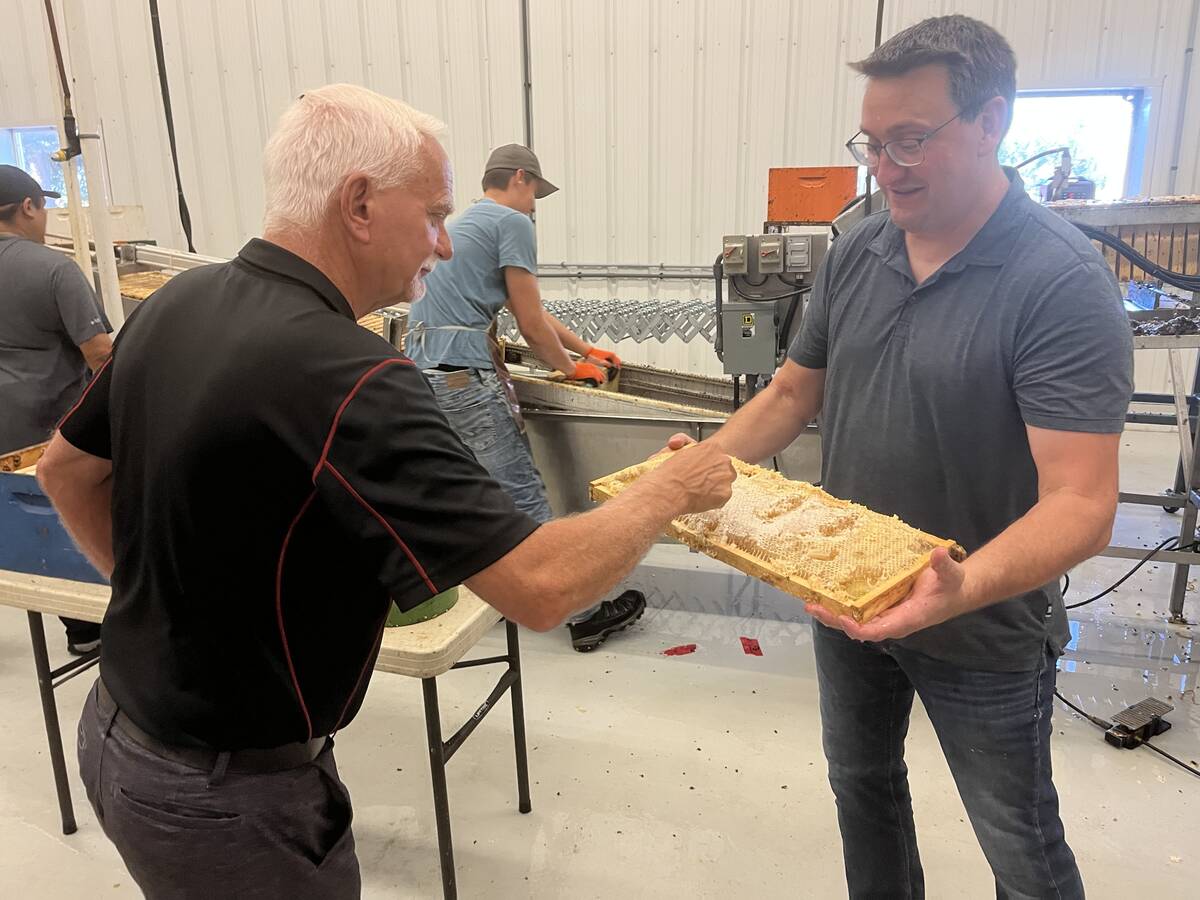Just because it’s poop and it’s free doesn’t mean it’s good for the garden.
That’s the bottom line from a host of gardening sources on the issue of fresh manure.
Fresh manure can be dangerous for plants and human health, and poop from various species of animals can be radically different in nutrient content and their effects on growing plants.
Gardening experts say gardeners need to realize that manure should be composted rather than directly applied.
As well, the nutritional nature of manure needs to be understood and human health considerations must be foremost in vegetable gardeners’ minds.
Read Also

Alberta honey business ‘thrives’ despite bumpy beginnings
Thrive Honey showcases its honey production in market where Alberta produces 40 per cent of all honey produced in the country
“If you use fresh manure in the garden, there is a small risk that pathogens which cause disease may contaminate garden vegetables,” according to Washington State University’s Co-operative Extension Service.
Diseases include listeria, salmonella and E. coli and parasites include roundworms and tapeworms.
Meat-eating animals, such as dogs, also contain parasites that are particularly dangerous. Experts say their feces should be completely avoided.
The same rule applies to pig manure, says the University of Maine, because it contains parasites that are particularly likely to infect people.
This might not be a problem on most commercial hog farms because producers pay a lot of attention to biosafety and restricting the flow of disease through fecal matter.
However, even a farmyard pig can host these parasites and pass them on in their poop.
Vegetables that directly touch fresh manure are obviously most at risk for transferring disease to people.
“The risk is greatest for root crops, like radishes and carrots, and leafy vegetables, such as lettuce, where the edible part touches the soil,” says WSU.
“Careful washing and/or peeling will remove most of the pathogens responsible for the disease. Thorough cooking is even more effective.”
The most effective method of preparing and sanitizing fresh manure is to compost it, which isn’t much more complex than piling it up and mixing it frequently to allow natural processes to heat and break down the materials in the raw feces.
The finished product is easy to apply and much safer than fresh manure.
However, regardless of whether manure is composted or applied fresh, different farm animal species have radically different types of manure.
Cattle manure is the most balanced and least agronomically dangerous to flowers and vegetables. Its low nitrogen levels mean it won’t easily burn plants.
Horse manure is higher in nitrogen and isn’t best for flower gardens and some vegetables.
“It is lower in the fruiting and rooting nutrients, phosphorus and potassium, which is why we always warn people to not use horse manure on flowering plants,” says the Gardens Alive website.
“Use it on non-flowering, nitrogen-loving plants like lawns, corn, potatoes, garlic and lettuce, but not on tomatoes, peppers, flowers and such.”
Many gardening sources say sheep manure is an excellent resource, but it is usually difficult to gather because sheep live in pastures rather than being confined.
Poultry manure is super-high in nitrogen and must be handled delicately when applied to avoid burning plants’ roots. Poultry manure is best used as a supplement to other types of manure, or gingerly.
Exotic manure is also sometimes valuable, if it can be found. It could be worth a gardener’s time to get in the pickup with a pitchfork — a big pitchfork — when the circus comes to town.
“Elephant manure is highly prized by gardeners, both for its quality and quantity,” say a popular United Kingdom-based online encyclopedia, h2g2.
However, composting elephant poop is also a good idea.
“Warning: elephant pies are the size of a football, composed mostly of undigested roughage and take forever to break down,” says Gardens Alive.
“I recommend helping things along with a machete and/or baseball bat. But once it is finally done, the resulting compost keeps the deer miles away.”


















